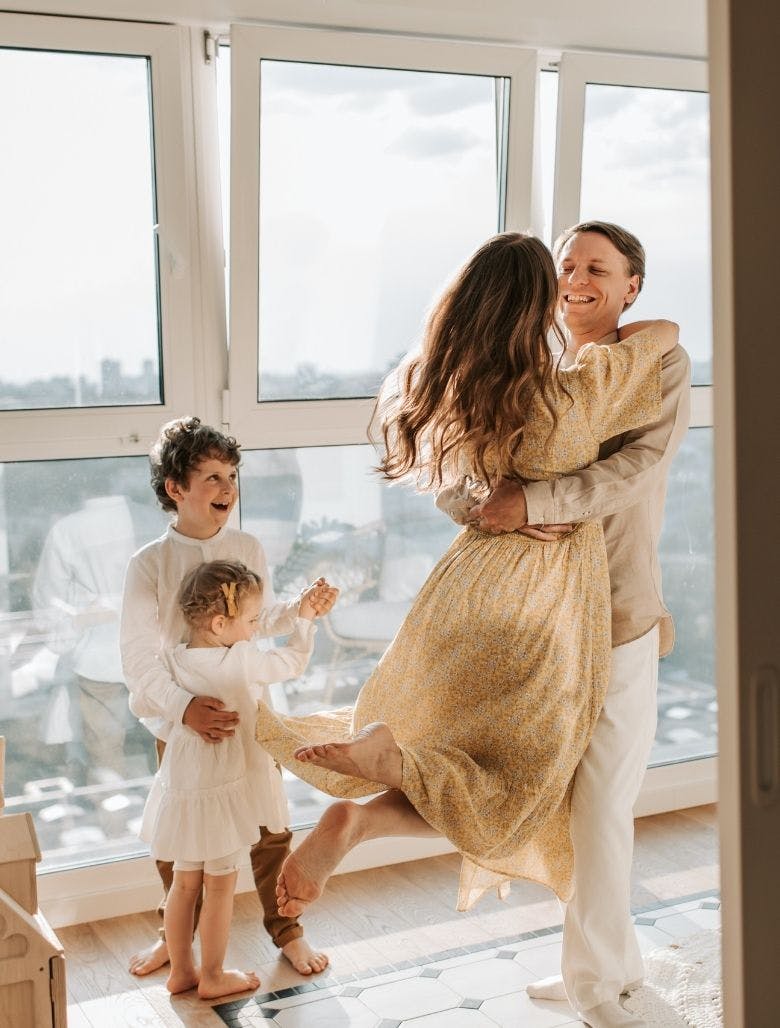10 Tips For A Better Work-Life Balance
8 minutes read
Best-selling author, consultant and executive coach Gill Whitty Collins was a senior executive when she decided to step back and pursue a life with a healthier work-life balance; she tells Beauty Daily the reason why it works for her:
“I am proud of my relationship with my son, even though I know I didn’t always get things right when he was growing up. However, I think I have done well because, whilst I have always worked very hard during business hours, I have never worked evenings, weekends or on holiday – that time is for my family, my friends, and me. I would have loved to be a CEO in many ways, and I believe I would have been a good one, but I think I reached the limit of what was possible for me given the work-life balance I want – and I am happy with this choice.”
Work-life balance could mean different things to different people. Some people love to blur the lines of a work-life balance, which may work. But, if it doesn’t, here is the advice from the professionals.
It’s not simply divvying up the hours in your day between work and everything else. It’s about finding a sense of fulfilment and contentment and that, by itself, is an ongoing pursuit.
“Work and life can’t be completely separated – they are both parts of who you are. It begins with a mindset and is created by you through your choices. With working from home and the unpredictable, pressured environment, practising work-life balance is essential now more than ever,” says Corina Zanner-Entwistle, Hypnotherapist and Psychotherapist, CEO of Executive Mind Solutions.
Experts say re-evaluating your evolving feelings and priorities and adjusting your work and life choices accordingly is critical, rather than constantly chasing 50/50 on both ends.

Why is work-life balance important?
“Life first, work second. Work-life balance is vital for us all. But, first and foremost, it is crucial for our health and well-being. If we work too hard on an unsustainable basis, we will eventually make ourselves ill – physically, mentally, or both,” Whitty- Collins says.
Adding, “I worry when I see people allowing their work to eat into what should be their personal time. We all need to remember that work is work; it isn’t our family or friends. We mustn’t give it too much of ourselves, not least because our minds and bodies need to rest, recuperate, sleep – and play sometimes!”
Studies show that personal choices only take you so far in obtaining a work-life balance. So much of it falls on what your organisation does to make it feasible. According to a UK Working Lives Survey survey, three in five employees (60%) say they work longer hours than they want, and one in four (24%) say they overwork an additional ten or more hours a week.
Most of the participants say their job caused disruption to family life and made it hard for them to switch off in their downtime.
Mental Health Foundation found that 27% of employees feel depressed, 34% feel anxious, and 58% feel irritable when working long hours.
UK-based Mentor and Coach Paula Sheridan, founder of Unwrapping Potential, says, “Recognising the imbalance is only one part of the story. The remaining factor is recognising where the pressure is coming from, either home, work or self. Learning to let go, accept trade-offs and say no occasionally is the big work.”

How to handle work-life balance as a couple
Many people tend to bring work stress home, so it’s crucial to find ways to counter that. When your workday ends, one of the best things you can do is leave your workplace stress “at the door” to engage with your partner at home fully.
Zanner-Entwistle advises to put your partner first and make them feel loved, appreciated and valued; do tasks and manage children together – make home life a team effort; make the time to talk, relax and even pamper your partner. Just an hour a week of purely dedicated time to each other can make a huge difference. Lastly, love; when things get tough, love your partner.
On the other hand, Sheridan advises having a conversation with your partner: “We get scared of these conversations because they are important. So we put them off, and then resentment builds. But they are usually not as difficult as we expect.
Plan them and ensure the communication includes your partner and their needs, not just making demands. When to have the conversation is key. Choose a calm, relaxed time, and tell the other person what you want to talk about. Of course, no plan will be perfect or permanent. And you both will need to let go of certain things (those trade-offs, such as not saving them when they drop the ball!), but for a life with more balance, that’s normal.”
10 Expert-Backed Tips For A Better Work-Life Balance
Pursuing a work-life balance is a continuous, never-ending process of self-awareness and timely tweaks. Here are ten expert-backed tips on overcoming unhealthy work habits and developing good ones.
How to create a work-life balance with a family by Whitty-Collins
1) If you are in a relationship, make sure you do your part.
Too many women carry most of the burden of unpaid work in their households even if they have a career of their own. This just doesn’t add up. We all only get 24 hours a day – on this front, we are equal. So this is important – if you don’t have a 50/50 relationship, you need to have a serious discussion with your partner about how to reallocate the unpaid work fairly and give you both a healthy work-life balance.
2) Switch off
We need to physically switch off long before we need to mentally switch off because our minds take a little time to stop whirring and close down. Working or discussing work until close to bedtime is a disaster. Laptop closed down, no more calls, no looking at emails or messages.
3) Never work on the weekends or holidays
My laptop stays at home and doesn’t travel with me.
4) Be present
Depending on how tough my workday has been, it may take me an hour or so to de-stress and switch off, but I am entirely focused on the people I am with and whatever we are doing by dinner time. I am ready to fall quickly into a long, peaceful sleep by bedtime.
Set some boundaries with Paula Sheridan, Mentor, Coach and founder of Unwrapping Potential
5) Clear headspace
Do something at the end of each workday (walk the dog, call your mum, it doesn’t matter) that signals a change in your brain space.
6) Start a positive ritual
Make the ritual to end the day something positive. A glass of wine is tempting, but it won’t help in the long run if you tie yourself to depending on that for relaxation. Working from home has messed up people’s balance. Rituals can be very effective for signalling when your workday begins and ends.
7) Learn to say no
If this is something you struggle with, it is worth finding someone – a friend or a coach – to talk through what ‘No’ means to you and how to address it. Saying no is utterly liberating!
Prioritise health by Corina Zanner-Entwistle, Hypnotherapist and Psychotherapist, CEO of Executive Mind Solutions
8) Accept that there’s no perfect work-life balance
There is no ‘perfect’ in life. Sometimes the scale will be a bit heavier on one side than the other, but just doing the best you can, being kind to yourself and implementing small things every day that help you feel more balanced make a huge difference.
9) Prioritise your health
Take time to be healthy – eating well, exercising, getting enough sleep, fresh air, social interaction and time for yourself are important ways of feeling more balanced.
10) Take a break or a holiday – try to schedule time off
Even just a long weekend can make a difference to how you feel – leaving you feeling refreshed and re-energised. Take time off at the weekend. Feeling renewed makes you feel more balanced and content as a whole.
Beauty Daily Mood-Boosting Tips
Small things, when done consistently, will become a way of life. So why not inject habits into your routine designed to lift your mood, and clear your headspace?
We can’t think of a better way but recommend the power of essential oils. Working mornings, why not add a few drops of facial treatment oil to your foundation? Not only will it serve as a hydrating make-up base, but it will boost your overall mood. It only takes three seconds. Know which essential oil is best for your skin type.
After a long, hectic day, mist Eau Ressourçante over your bed linens or silk pillowcases. It has basil extract, proven to reduce tension, promote sleep, and give you the REM sleep you deserve.
At weekends – we think of a spa. Clarins offers complementary treatments that leave you with zero excuses. But for days, you need a significant boost and pounds to spare.
Read: The Best Spa Treatments To Book Today

Lucy Mcclure, Clarins Treatment Training Development Manager, recommends indulging in an Energy Booster Treatment. It will sweep away your stress and leave you with ultra-hydrated skin and a renewed body and mind.
According to the latest research from the University of Warwick, happiness makes people more productive at work; so speak up, say no, and change; all of these will come from you and your decisions. Don’t wait until you explode and burst. Help is there – in many ways. Do what feels right, and the rest will follow.
Read Next: 9 Strategies To Manage Stress And Build Resilience
Sign up for our newsletter
We will keep you in the loop for special offers, exclusive gifts and product news.

